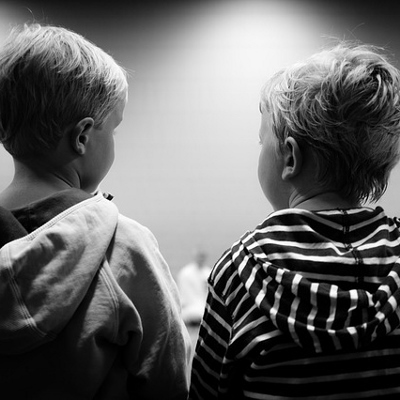 Preschoolers are great learners. When we learn to take advantage of their sponge like brains, we can really make a difference in who they become. This is a perfect age to teach them same basic social skills to carry them into life.
Preschoolers are great learners. When we learn to take advantage of their sponge like brains, we can really make a difference in who they become. This is a perfect age to teach them same basic social skills to carry them into life.
For most kids nowadays, they are in day care of some sort from a very early age and learn how to co-exist with other kids. The lucky few that can have a parent stay home during infant-hood and the toddler years get their first real social experiences in preschool. It truly does not matter which category you fall into, this article will still apply to you.
Important skills such as sharing, compassion and friendship can be learned in this setting and encouraged further at home.
For my daughter, she was great at sharing at home with us and the friends she played with. However, she only had to deal with one or two people at a time and her “turn†came back around very quickly. At preschool, she had 15 other lads that wanted turns. This was a challenge for her at first. She picked it up quickly with the help of her teachers, but we still needed to build on this at home too. We did this by taking turns with her as usual, but after each of us had a turn; we put the toy away for a little while. This lengthened the time in between turns and taught her to find something else to do while she was waiting.
Compassion was never really an issue for my little girl. She inherited her mom’s kind heart. They are so good at thinking about others and she was fortunate enough to have this modeled daily at home. She actually helped other kids learn this trait. She is a very outgoing person and we do not want her to become the popular “mean girl.†So, we encourage her to look for the shy kids who and make them feel like they are part of the crowd too. This mixed perfectly with her compassionate heart and extroverted tendencies.
One of the last things, but one of the most important, is teaching them how to make friends. Kids can play together all the time, but they treat one another like a toy and once they are done they move on. Rarely do they seek to form a friendship unless it is someone they play with all the time. For example, while at the park, how often does your child ask the other what his name is?
Most kids are pretty bad at getting to know who the other child is. We can encourage this by asking questions about classmates. Also, we need to model this behavior for them while we are at the park watching them play. Instead of having our noses in our phones, talk to the other parents standing around.
These simple social skills can really help our children grow as people.










